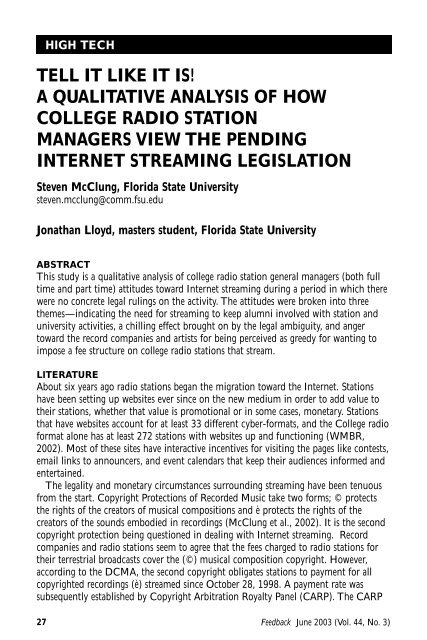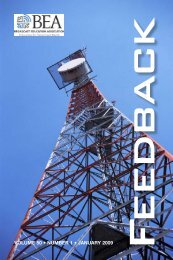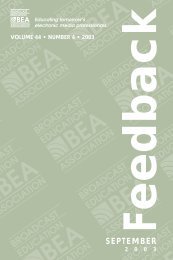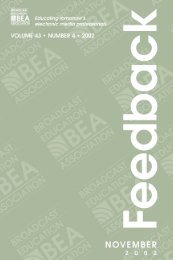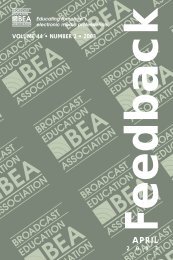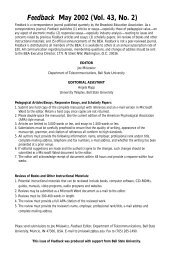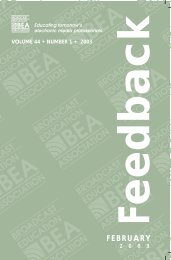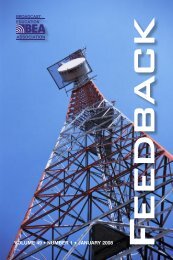JUNEFeedback
Issue 3 - Broadcast Education Association
Issue 3 - Broadcast Education Association
Create successful ePaper yourself
Turn your PDF publications into a flip-book with our unique Google optimized e-Paper software.
HIGH TECHTELL IT LIKE IT IS!A QUALITATIVE ANALYSIS OF HOWCOLLEGE RADIO STATIONMANAGERS VIEW THE PENDINGINTERNET STREAMING LEGISLATIONSteven McClung, Florida State Universitysteven.mcclung@comm.fsu.eduJonathan Lloyd, masters student, Florida State UniversityABSTRACTThis study is a qualitative analysis of college radio station general managers (both fulltime and part time) attitudes toward Internet streaming during a period in which therewere no concrete legal rulings on the activity. The attitudes were broken into threethemes—indicating the need for streaming to keep alumni involved with station anduniversity activities, a chilling effect brought on by the legal ambiguity, and angertoward the record companies and artists for being perceived as greedy for wanting toimpose a fee structure on college radio stations that stream.LITERATUREAbout six years ago radio stations began the migration toward the Internet. Stationshave been setting up websites ever since on the new medium in order to add value totheir stations, whether that value is promotional or in some cases, monetary. Stationsthat have websites account for at least 33 different cyber-formats, and the College radioformat alone has at least 272 stations with websites up and functioning (WMBR,2002). Most of these sites have interactive incentives for visiting the pages like contests,email links to announcers, and event calendars that keep their audiences informed andentertained.The legality and monetary circumstances surrounding streaming have been tenuousfrom the start. Copyright Protections of Recorded Music take two forms; © protectsthe rights of the creators of musical compositions and è protects the rights of thecreators of the sounds embodied in recordings (McClung et al., 2002). It is the secondcopyright protection being questioned in dealing with Internet streaming. Recordcompanies and radio stations seem to agree that the fees charged to radio stations fortheir terrestrial broadcasts cover the (©) musical composition copyright. However,according to the DCMA, the second copyright obligates stations to payment for allcopyrighted recordings (è) streamed since October 28, 1998. A payment rate wassubsequently established by Copyright Arbitration Royalty Panel (CARP). The CARP27Feedback June 2003 (Vol. 44, No. 3)


